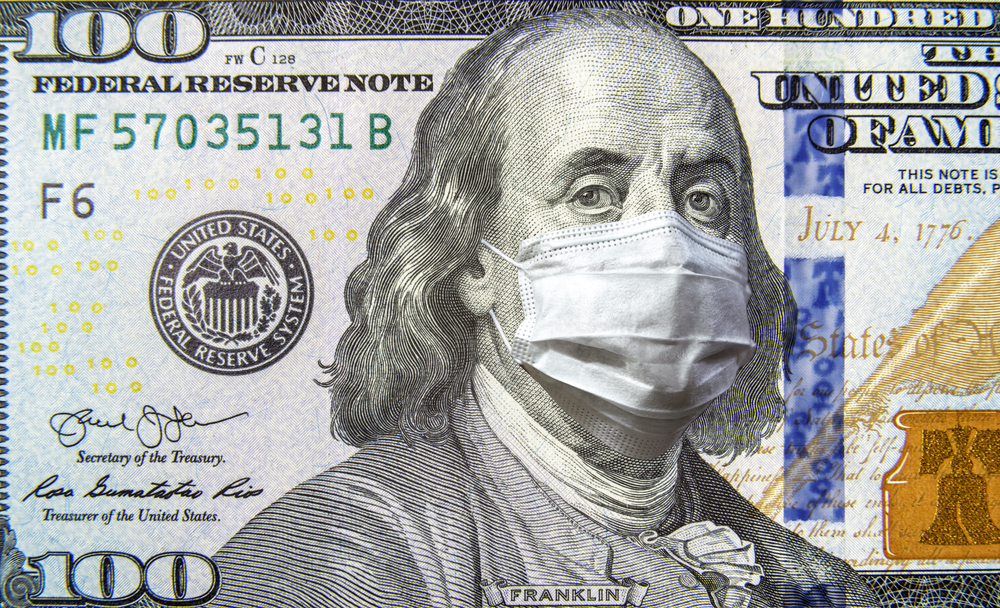Covid-19 Is Gaining Momentum
This year is about to end soon, but the same cannot be said about the COVID-19 pandemic. Millions of Americans find themselves in dire financial situations and a large chunk of the population is unemployed during this holiday season. The pandemic has caused widespread economic uncertainty across the country, and millions of people face concerns about the inaccessibility of COVID-19 testing and healthcare.
Unemployment all over the country is rising steadily, with the current number of unemployed individuals reaching over 770,000. Though this is nowhere close to the unemployment rate a few months ago when the pandemic started, it is still quite alarming considering how hard the economy will be hit if the number keeps rising.
However, despite the alarming situation and uncertainties, US lawmakers continue to find themselves in a political deadlock over addressing the pandemic’s economic impact. While both the democratic and republican parties agree that measures need to be taken to address unemployment, food insecurity rates and access to health care, nothing has been done thus far.
During this holiday season, food banks in the nation’s capital of Washington are facing record-breaking demands, while lawmakers have returned to their districts for the Thanksgiving break.
Food Banks Facing Rising Demands Due To Covid-19
Many families had members who were working multiple jobs at the same time to earn a decent living. However, as the pandemic struck, many lost their jobs and could no longer survive on their paychecks. The CEO of a local food bank in Washington states that the number of people coming to the food banks has increased by 60% after the pandemic.

Pre-pandemic, around 400,000 people would visit the food bank for aid. Now, the numbers are close to 600,000, as more people struggle to navigate around the repercussions of the pandemic. Most of them face an emergency food shortage as they have recently lost their jobs and do not have any other income source.
Nike Covid-19: Health Department Official Turned Away Days After Worker’s Death from Pandemic
These rates can be confirmed by the recent research conducted by Pew Research Centre. It found that 25% of the adults were or knew someone in their household who had lost their job due to the COVID-19 pandemic. Moreover, since the start of the pandemic, one in six Americans had either borrowed money from someone they know or been to the food bank for aid.
COVID-19 Relief Programs Reaching an Imminent End
With no news about a new round of aid for the year 2021, two key COVID pandemic relief programs initiated by the CARES Act are set to expire in December. The CARES Act is the biggest relief package created in the history of the nation. Not only did it initiate two relief programs, but it also handed out cash checks to many Americans, which proved to be extremely beneficial for them in paying their rent and food.
One of the programs initiated by the CARES Act was the PUA, Pandemic Unemployment Assistance program, which aimed to provide help to individuals who would typically not qualify for unemployment in the traditional sense, for example, self-employed workers, contractors and gig workers. It is set to expire on December 31st if the federal government does not extend it. As a result, 7.3 million people will lose their benefits once it expires.
Similarly, with the Pandemic Emergency Unemployment Compensation (PEUC) program expiring on the same date, 4.6 million people would lose their benefits. In addition to that, student debt relief and the national eviction moratorium are set to expire when the year ends. This could put an estimated 30 million people in deep water as they struggle to pay their debts and mortgage when the holiday season ends.
A study on the US’s monthly poverty rates showed that the CARES Act significantly helped manage poverty during the COVID pandemic. It helped over 18 million people come out of monthly poverty. However, the poverty rates began increasing as the assistance faltered, and this number fell to 4 million people when some of the unemployment benefits provided by the package expired in August and September.
Congress in Deadlock
Due to the imminent end of the two programs, the Democratic-majority House of Representatives has put forward two proposal programs, which include the $3 trillion HEROES Act and another $2.2 trillion project. The Republican-majority Senate has put forward two proposals that have not yet been passed. One is the $1 trillion HEALS Act, and the other is a “skinny” proposal that totals $500 billion.
In light of the recent election season, both parties refused to lower their packages because of the adversity of the current national situation. In a recent press conference, House Speaker Nancy Pelosi said, “We are in a full-blown economic and health catastrophe.” Considering the gravity of the situation, it is imperative to move forward with the packages as swiftly as possible.
The lawmakers have a tight deadline for working out a compromise and address this expiration. This is because when the Senate and House return from their holiday break, these lawmakers will have only 15 days left to make these decisions on top of a packed legislative schedule.
Surge in COVID Cases
Despite several promises of the vaccine being distributed early on in the coming year, Americans are still predicted to face difficult months as the COVID cases continue to increase nationwide. The US has reached 12.4 million confirmed COVID cases this week and experienced over 250,000 deaths.
The numbers have been increasing daily, and it is only set to rise as more people travel for Thanksgiving and the Christmas holidays. Even with the vaccine here and COVID cases declining, the economic impact left by the pandemic is likely to stay for a long time. These relief packages that will be introduced in the next year have to function for at least a year or two as people affected by the pandemic will need relief and aid for a prolonged time to get back up on their feet.

